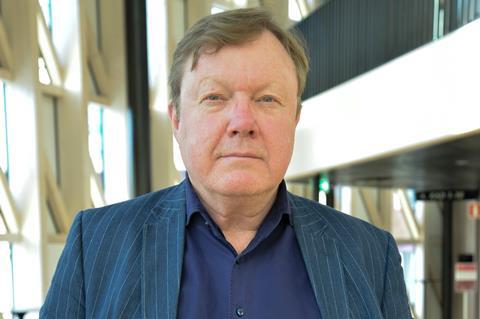Sweden has reached the UNAIDS and WHO targets for the HIV epidemic, according to a study in Eurosurveillance by researchers at Karolinska Institutet and others. According to the researchers, Sweden is the first country in the world to achieve these targets.

Sweden has reached a historic milestone in the fight against HIV. A new study shows that Sweden has reached the UNAIDS and WHO targets for the HIV epidemic, known as the 95-95-95 target.
READ MORE: HIV vaccines tested in PrEPVacc fail to reduce infections
READ MORE: A trial HIV vaccine triggered elusive and essential antibodies in humans
This means that 95 percent of all people living with HIV in the country have been diagnosed, 95 percent of these are receiving treatment, and 95 percent of those treated have undetectable levels of the virus in their blood. The targets are to be reached by 2025.
Sweden’s figures are even better: 96 percent have been diagnosed, 99 percent are on treatment and 98 percent have undetectable virus levels.
Ambitious targets
“This is proof that it is possible to reach these ambitious targets. It shows that Sweden’s infrastructure for finding and treating people with HIV is very effective,” says one of the researchers behind the study, Professor Anders Sönnerborg at the Department of Medicine, Huddinge, Karolinska Institutet.
The study is based on data from the national HIV cohort established in 2003. Over 99 percent of all people diagnosed with HIV in Sweden are included in this cohort, and the data has been analyzed using advanced bioinformatics methods in collaboration with researchers at Los Alamos National Laboratory in the United States.
“We have shown that we have indeed reached the target. This means that people with HIV in Sweden have a life expectancy approaching that of non-HIV-infected people and that the vast majority of those diagnosed are not infectious,” says Anders Sönnerborg.
Researching HIV cure
The results are important because they show that it is possible to achieve the UNAIDS and WHO targets, which may inspire other countries to intensify their efforts against HIV. Despite the successes, challenges remain, such as late diagnosis, stigma and, not least, HIV cure.
“Research on HIV cure is now a top priority,” says Anders Sönnerborg
Researchers at Karolinska Institutet are also continuing to work to ensure that the targets are maintained and to improve the quality of life for people living with HIV.
“We are now working on a fourth goal: that 95 percent of people living with HIV in Sweden should have a good quality of life,” says Anders Sönnerborg.
Leader in fight
Anders Sönnerborg says that Sweden is the first country with a published study that can show that these goals have been achieved.
“This success shows that Sweden is a leader in the fight against HIV and that it is possible to reach the global targets to end the HIV epidemic.”
The study was conducted in close collaboration with researchers at Los Alamos National Laboratory in the United States, and has been funded by the NIH, the Swedish Research Council and Region Stockholm.







No comments yet